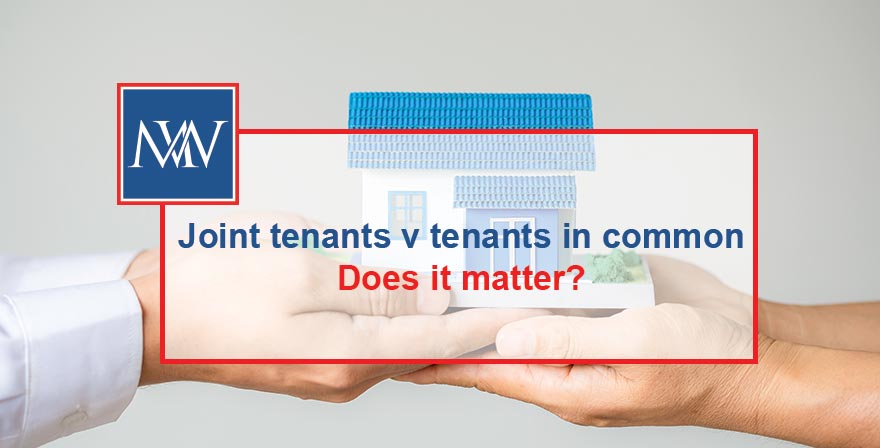
Joint tenants v tenants in common – Does it matter?
There are two different ways of owning property jointly – as joint tenants or as tenants in common. The way in which the property is owned determines exactly who owns what and also what happens when one of the joint owners dies and how any income is taxed.
Joint tenants
Where two or more owners own a property as joint tenants, they jointly own the whole property rather than owning individual shares. Each owner has equal rights to the whole property. When one of the joint owners dies, the remaining joint owners own the whole property. The deceased is not able to pass his or her share on to someone else.
Example
Helen and Harry are married and own their family home as joint tenants. The couple has three children. If, for example, Harry dies first, his share of the property automatically passes to Helen. Harry cannot leave his share of the property to his children.
Where a property that is owned as joint tenants is rented out, the income is treated as arising in equal shares as all owners have an equal stake in the property. For spouses and civil partners, this is the default position; however, there is no possibility of making a Form 17 election (see below) as the property owned as joint tenants can only be owned equally.
Tenants in common
Tenants in common own individual shares in the property and have more flexibility than joint tenants as to what they do with their stake in the property. On death, their stake does not automatically go to the other joint owners; rather it will follow the provisions of the will (or if there is no will, the intestacy provisions).
It will be beneficial to own property as tenants in common if you want to leave your share of the property to someone other than the other joint owner.
Example
Jack and Jane are married. Each has children from previous relationships. They own a holiday cottage as tenants in common. In their wills, they have each made provision for their share to pass to their own children.
Where the property is let out, owing to the property as a renter in common provides more flexibility as to how the income is allocated for tax purposes. Where the joint owners are spouses or civil partners, the income is treated as arising equally. However, where the actual beneficial ownership is unequal, they can elect (on Form 17) for the income to be taxed in accordance with their ownership shares where this is beneficial. If the tenants in common are not married or in a civil partnership, the income is taxed by reference to their actual stake in the property.
Changing ownership status
It is relatively easy to change the type of ownership, for example, if the property is owned as joint tenants it may be desirable to own it as tenants in common to enable each owner to leave their share to someone else. A property can also be changed from sole ownership to joint ownership – ether as tenants in common or joint tenants.
Need Accountancy Support?
For information on bespoke training, or if you have any other questions for Makesworth Accountant, please fill in your details below
















 151
151